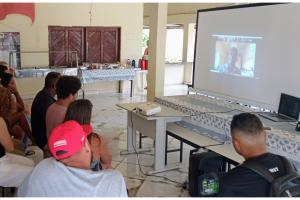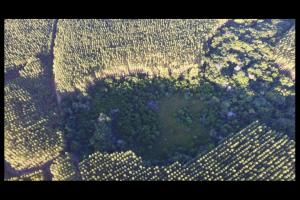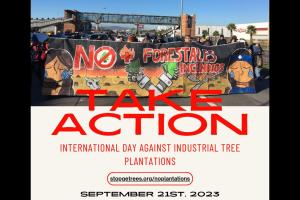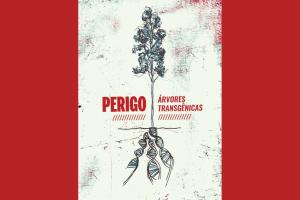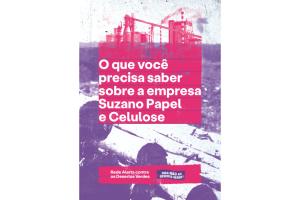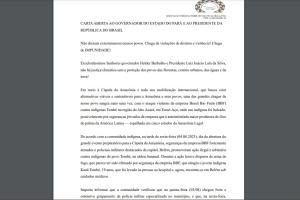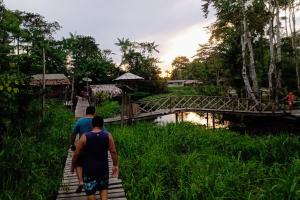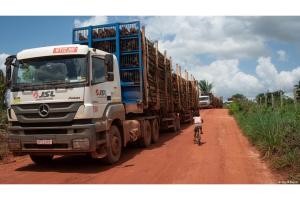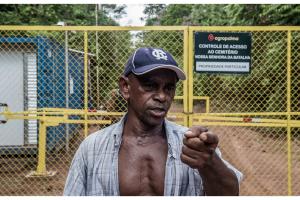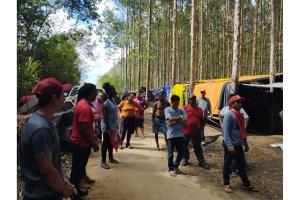Exchanges between activists put the voices of those who fight to defend their territories at the center of the conversation. In September, members of communities from Brazil and Mozambique united their struggles and connected their histories once again, helping to strengthen solidarity in the fight against industrial tree plantations.
Brazil
Bulletin articles
25 October 2023
Other information
25 October 2023
The network released an open letter in which it denounces the impacts of the plantations and the crimes committed by the companies. At the same time, they demand reparation and reaffirm resistance against tree monocultures.
Action alerts
21 September 2023
Sign the letter in support of Indigenous and local communities devastated by the social and ecological impacts of industrial tree plantations, and threatened by the planned future use of GMO tree plantations.
Publications
15 September 2023
In this booklet we share basic information about GE trees, in particular about seven varieties of eucalyptus trees that have already been approved in Brazil. This is the first country besides China to approve the large-scale use of GE trees.
Publications
21 August 2023
Suzano is a Brazilian multinational company that produces cellulose and paper products from eucalyptus plantations. Read this booklet produced by the ‘Alert Against the Green Desert’ Network and find out important facts that are often hidden by this mega-company’s propaganda machine.
Multimedia
11 August 2023
Tembé indigenous leaders shot by private security forces (only available in Portuguese).
Articles
11 August 2023
Your Excellencies Governor Helder Barbalho and President Luiz Inácio Lula da Silva, there is no climate justice without the protection of two forests, urban centers, water and land! (Only available in Portuguese).
Bulletin articles
22 July 2023
In the ‘green economy,’ the interests of corporations, governments and the conservation industry intersect. All of these entities, in one way or another, profit from the destruction of forests and the dispossession of communities. In Pará, there are not only increasing REDD projects, but the state governor is seeking to implement jurisdictional REDD throughout the territory.
Other information
22 July 2023
DW news portal investigated ongoing socio-environmental conflicts in Brazil related to Suzano, which manages over a million hectares of eucalyptus plantations across the country and plans to almost double that in the next decade.
Other information
22 July 2023
The Brazilian justice system annulled the registration of two properties of Agropalma, the largest sustainable palm oil producer in the Americas, due to the fact that they were usurped lands.
Action alerts
28 April 2023
The quilombola communities of the Acará Valley, Pará State, Brazil, through the AMARQUALTA association, together with Tembê and Turiwara indigenous communities, denounce one more violent action by the oil palm plantation company Brazil Biofuels (BBF).
Action alerts
18 April 2023
We urge you to express solidarity with MST (Movement of Landless Rural Workers) and send an urgent message to the state government in order to prevent that 200 families will be evicted from a land occupation in a eucalyptus plantation area of the transnational pulp and paper company Suzano.
